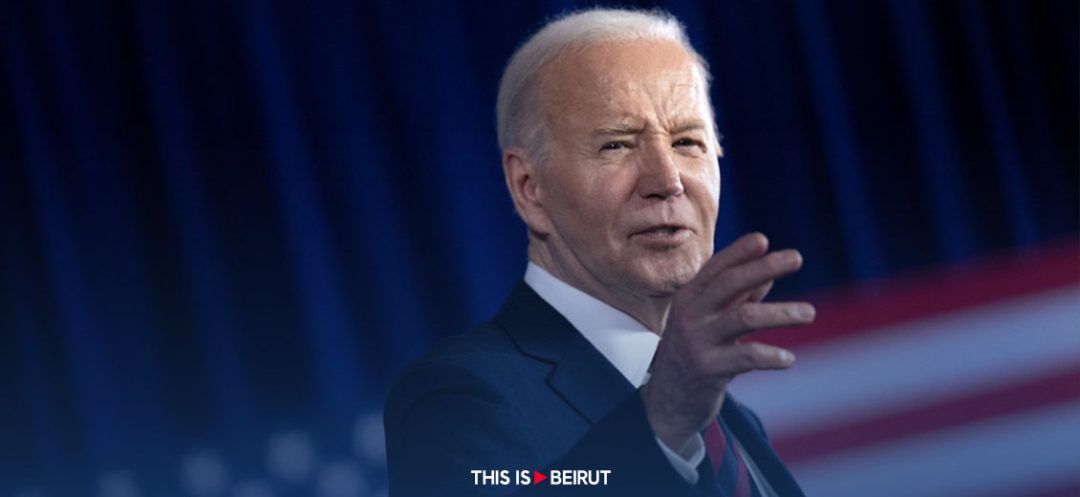
©(Brendan Smialowski, AFP)
Taiwanese semiconductor giant TSMC agreed to increase its investment in the US to $65 billion on Monday, in a victory for Biden as November's presidential election looms.
The Taiwan chip giant TSMC agreed to build a third semiconductor factory in Arizona, raising its total investment in the United States to $65 billion, US officials said on Monday.
Lael Brainard, President Joe Biden's chief economic adviser, hailed the news as "a new chapter for America's semiconductor industry."
She told reporters that the investment planned by TSMC is based on a preliminary agreement with the US Commerce Department that is tied to a major investment law called the Chips and Science Act.
Under this agreement, Taiwan Semiconductor Manufacturing Company will receive up to $6.6 billion in direct funding from the US government and could get up to another $5 billion in the form of loans.
The law is a pillar of the administration's drive to protect and strengthen American industrial power as Biden runs for another term in November.
The United States is seeking to ward off the prospect of suffering shortages of cutting edge chips that are essential for making cell phones, electric cars and advanced military equipment.
As things stand, the United States is highly dependent on Asia for these components and thus vulnerable in the event of a geopolitical crisis, particularly in a sensitive place such as Taiwan, which China regards as a renegade province it is determined to take back some day.
TSMC, which had already planned to build two plants in Arizona, is going to make semiconductors even more advanced than originally planned at one of them and will also construct a third facility, US officials said early on Monday.
The company is thus raising its total investment in the US from $40 billion to $65 billion.
"For the first time ever, we will be making at scale the most advanced semiconductor chips on the planet here in the United States of America," Commerce Secretary Gina Raimondo said.
Raimondo said that with these plans, TSMC would create at least 6,000 direct high-tech jobs but also more than 20,000 in the construction of the factories and tens of thousands of indirect jobs.
"Our US operations allow us to better support our US customers," said TSMC chairman Mark Liu.
TSMC accounts for more than half of the world's semiconductor production.
It has begun to diversify its production, under pressure from customers but also from governments worries about the possibility of China invading Taiwan.
Besides the United States, the company plans to make chips in Japan and Germany.
The Chips and Science Act passed in 2022 calls for $52.7 billion in money to overhaul the semiconductor industry in the United States, with the idea that making public money available for this purpose will lure private investment.
For instance, the US company Intel recently announced new production capacity in several states including Arizona, one of the swing states seen as a must win for Biden in the November election.
Aurélia END, with AFP
The Taiwan chip giant TSMC agreed to build a third semiconductor factory in Arizona, raising its total investment in the United States to $65 billion, US officials said on Monday.
Lael Brainard, President Joe Biden's chief economic adviser, hailed the news as "a new chapter for America's semiconductor industry."
She told reporters that the investment planned by TSMC is based on a preliminary agreement with the US Commerce Department that is tied to a major investment law called the Chips and Science Act.
Under this agreement, Taiwan Semiconductor Manufacturing Company will receive up to $6.6 billion in direct funding from the US government and could get up to another $5 billion in the form of loans.
The law is a pillar of the administration's drive to protect and strengthen American industrial power as Biden runs for another term in November.
The United States is seeking to ward off the prospect of suffering shortages of cutting edge chips that are essential for making cell phones, electric cars and advanced military equipment.
As things stand, the United States is highly dependent on Asia for these components and thus vulnerable in the event of a geopolitical crisis, particularly in a sensitive place such as Taiwan, which China regards as a renegade province it is determined to take back some day.
TSMC, which had already planned to build two plants in Arizona, is going to make semiconductors even more advanced than originally planned at one of them and will also construct a third facility, US officials said early on Monday.
The company is thus raising its total investment in the US from $40 billion to $65 billion.
"For the first time ever, we will be making at scale the most advanced semiconductor chips on the planet here in the United States of America," Commerce Secretary Gina Raimondo said.
Artificial Intelligence
Raimondo said that with these plans, TSMC would create at least 6,000 direct high-tech jobs but also more than 20,000 in the construction of the factories and tens of thousands of indirect jobs.
"Our US operations allow us to better support our US customers," said TSMC chairman Mark Liu.
TSMC accounts for more than half of the world's semiconductor production.
It has begun to diversify its production, under pressure from customers but also from governments worries about the possibility of China invading Taiwan.
Besides the United States, the company plans to make chips in Japan and Germany.
The Chips and Science Act passed in 2022 calls for $52.7 billion in money to overhaul the semiconductor industry in the United States, with the idea that making public money available for this purpose will lure private investment.
For instance, the US company Intel recently announced new production capacity in several states including Arizona, one of the swing states seen as a must win for Biden in the November election.
Aurélia END, with AFP
Read more



Comments